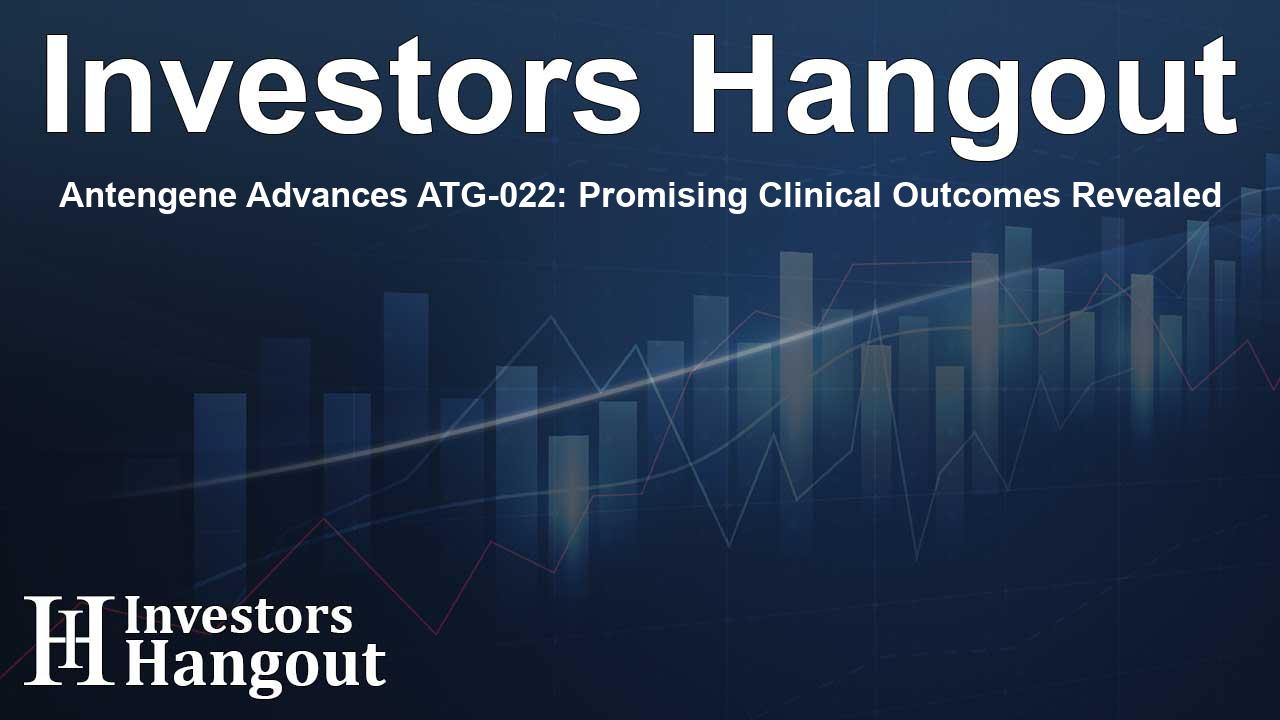Antengene Advances ATG-022: Promising Clinical Outcomes Revealed

Unveiling the Latest ATG-022 Data from Antengene
Antengene Corporation Limited, a trailblazer in innovative biotechnology, recently highlighted significant findings about their drug ATG-022 at the European Society for Medical Oncology Congress 2025, hosted in Berlin. This groundbreaking research showcases the effectiveness of the CLDN18.2 antibody-drug conjugate (ADC) across different expression levels, hinting at its potential abilities to combat various types of solid tumors.
Insights from the Phase I/II CLINCH Study
The ATG-022 is currently under investigation in a Phase I/II clinical trial known as the CLINCH study, which focuses on patients diagnosed with advanced gastric and gastroesophageal junction cancer. This study explores the efficacy and safety of ATG-022, demonstrating promising results in managing a cancer type that poses significant medical challenges.
Details of the Study Presentation
During the congress, researchers presented vital details from the trial. The study utilized ATG-022 in doses ranging from 0.3 to 3.0 mg/kg administered every three weeks. The results from both dose escalation and expansion phases are pivotal, particularly for patients exhibiting positive CLDN18.2 expression, which received ATG-022 at specific doses aimed at evaluating treatment effectiveness.
Understanding ATG-022 and Its Unique Mechanism
The significance of ATG-022 lies in its refined targeting strategy using a unique VC-MMAE linker-payload system. Its capability for swift internalization allows it to effectively latch onto and eliminate cancer cells exhibiting varying levels of CLDN18.2 expression. Throughout the study, ATG-022 demonstrated remarkable antitumor activity, suggesting its suitability for a broader range of patients than initially anticipated.
Key Findings and Patient Outcomes
The presented data reveal a compelling picture regarding the outcomes of patients involved in the study. Among those categorized as moderate or high expressors of CLDN18.2, the findings indicate a noteworthy objective response rate (ORR) of 40%, showcasing the drug's potential efficacy. These results not only affirm ATG-022's effectiveness but also provide a beacon of hope for patients battling advanced gastric cancer.
Safety Profile and Tolerability of ATG-022
From a safety perspective, patients tolerated ATG-022 well, with manageable treatment-emergent adverse events (TEAEs). The majority of patients did not exhibit severe reactions, reinforcing the optimism surrounding its potential for integration into standard therapeutic regimes, especially in conjunction with other treatments.
Antengene's Vision and Future Prospects
Antengene is committed to advancing oncology treatments and has nurtured a pipeline rich in innovative therapies targeting various types of malignancies. With ATG-022 poised for further development, Antengene's dedication to enhancing treatment standards remains unwavering. The promising results from the CLINCH study signify a step forward, positioning ATG-022 as a pivotal aspect of future cancer therapies.
The Journey Beyond Gastric Cancer
While the current focus is on gastric and gastroesophageal junction cancers, preliminary findings indicate that ATG-022 may also hold therapeutic promise for other non-gastrointestinal tumor types. This expands the scope of potential benefits, aligning with Antengene's extensive research and development endeavors aimed at addressing substantial unmet medical needs across diverse patient populations.
About Antengene
Antengene Corporation Limited is known for its commitment to delivering innovative solutions for serious health conditions. Their approach is defined by pioneering research and development aimed at creating therapies that provide genuine benefits to patients. The company's portfolio includes several notable candidates, including ATG-022, which harnesses innovative technologies to target hard-to-treat malignancies effectively.
Frequently Asked Questions
What is ATG-022?
ATG-022 is an antibody-drug conjugate that targets CLDN18.2, aiming to provide effective treatment options for patients with advanced gastric cancer.
What were the main findings from the CLINCH study?
The study reported a 40% response rate in patients with moderate to high CLDN18.2 expression, highlighting its potential effectiveness.
How safe is ATG-022?
ATG-022 has shown a manageable safety profile, with limited severe reactions in clinical trial participants, supporting its use in combination therapies.
What does the future hold for Antengene's research?
Antengene continues to explore additional applications for ATG-022 beyond gastric cancer while focusing on enhancing treatment protocols for diverse cancers.
How can patients learn more about Antengene's offerings?
Patients and healthcare providers can obtain further insights by exploring Antengene's developmental pipeline and initiated clinical studies, indicative of the company's forward-thinking approach.
About The Author
Contact Dominic Sanders privately here. Or send an email with ATTN: Dominic Sanders as the subject to contact@investorshangout.com.
About Investors Hangout
Investors Hangout is a leading online stock forum for financial discussion and learning, offering a wide range of free tools and resources. It draws in traders of all levels, who exchange market knowledge, investigate trading tactics, and keep an eye on industry developments in real time. Featuring financial articles, stock message boards, quotes, charts, company profiles, and live news updates. Through cooperative learning and a wealth of informational resources, it helps users from novices creating their first portfolios to experts honing their techniques. Join Investors Hangout today: https://investorshangout.com/
The content of this article is based on factual, publicly available information and does not represent legal, financial, or investment advice. Investors Hangout does not offer financial advice, and the author is not a licensed financial advisor. Consult a qualified advisor before making any financial or investment decisions based on this article. This article should not be considered advice to purchase, sell, or hold any securities or other investments. If any of the material provided here is inaccurate, please contact us for corrections.
